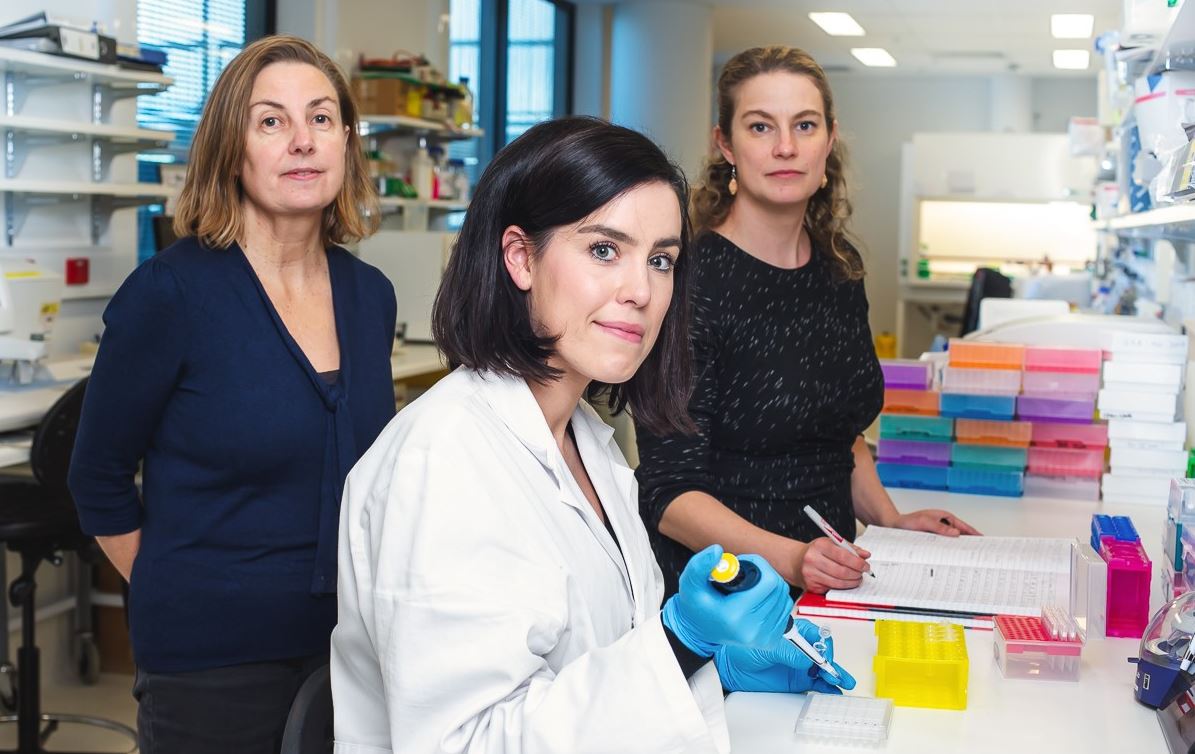
The first eight genes associated with the eating disorder anorexia nervosa have been identified by a global research group.
Led by US and Australian researchers – including experts at QIMR Berghofer in Queensland and input by Flinders University Distinguished Professor Tracey Wade – the large-scale international study indicates the origins of anorexia nervosa appear to be both metabolic and psychiatric.
The results of the large-scale genome-wide association study have been published this week in the high-level journal Nature Genetics.
Anorexia nervosa is a life-impairing illness characterised by dangerously low body weight, an intense aversion to gaining weight, and an inability or unwillingness to recognise the seriousness of the low body weight.
Almost 3,000 Australians and New Zealanders who had lived with the chronic eating disorder were invited to contribute DNA for the study of 16,992 anorexia cases from around the world collected by the Anorexia Nervosa Genetics Initiative and the Eating Disorders Working Group of the Psychiatric Genomics Consortium.
The genetic information of people with lived experiences of the disorder was compared to DNA from 55,525 controls of European ancestry from 17 countries across North America, Europe, and Australasia.
Principal investigator US Professor of Psychiatry Cynthia M. Bulik, from the University of North Carolina School of Medicine, says establishing the role metabolism plays in anorexia nervosa will influence treatment.
“Until now, our focus has been on the psychological aspects of anorexia nervosa such as the patients’ drive for thinness,” Professor Bulik says.
“Our findings strongly encourage us to also shine the torch on the role of metabolism to help understand why individuals with anorexia frequently drop back to dangerously low weights, even after therapeutic renourishment.
“A failure to consider the role of metabolism may have contributed to the poor track record among health professionals in treating this illness.”

Professor Nicholas Martin, from the QIMR Berghofer Genetic Epidemiology Laboratory, who is seeking to take DNA samples from more Australians to continue the study, says the findings are a significant step forward in understanding the disorder.
“We’ve got the first eight genes, but we know there are hundreds more genes to find, and we can only do that by broadening the study and recruiting more participants,” he says.
“I am hoping that this success will encourage other Australians living with eating disorders to volunteer to help us find the responsible genes.”
Understanding the role genetics plays in anorexia nervosa will help to remove any remaining stigma associated with the condition for patients and their families, especially parents.
“Our goal is to recruit 100,000 anorexia nervosa cases internationally with appropriate controls, and to also broaden our search beyond anorexia nervosa to include other eating disorders such as bulimia and binge eating disorder.”
The study also found the genetic basis of anorexia nervosa overlapped with metabolic (including glycemic), lipid (fats), and anthropometric (body measurement) traits, and was not due to genetic effects that influence BMI.
The wide-ranging research also uncovered other important information on the illness.
It found the genetic basis of anorexia nervosa overlapped with other psychiatric disorders such as obsessive-compulsive disorder, depression, anxiety, and schizophrenia – underscoring the importance of taking a broad clinical focus while working with individuals who experience an eating disorder.
The paper, Genome-wide association study identifies eight risk loci and implicates metabo-psychiatric origins for anorexia nervosa, was published in Nature Genetics.
The study was funded by the Boston-based Klarman Family Foundation, the Australian National Health and Medical Research Council, the US National Institute of Mental Health, the UK National Institute for Health Research, and the Foundation of Hope.
The Butterfly Foundation 1800 33 4673 or Lifeline 13 11 14 can help with psychiatric disorders.

